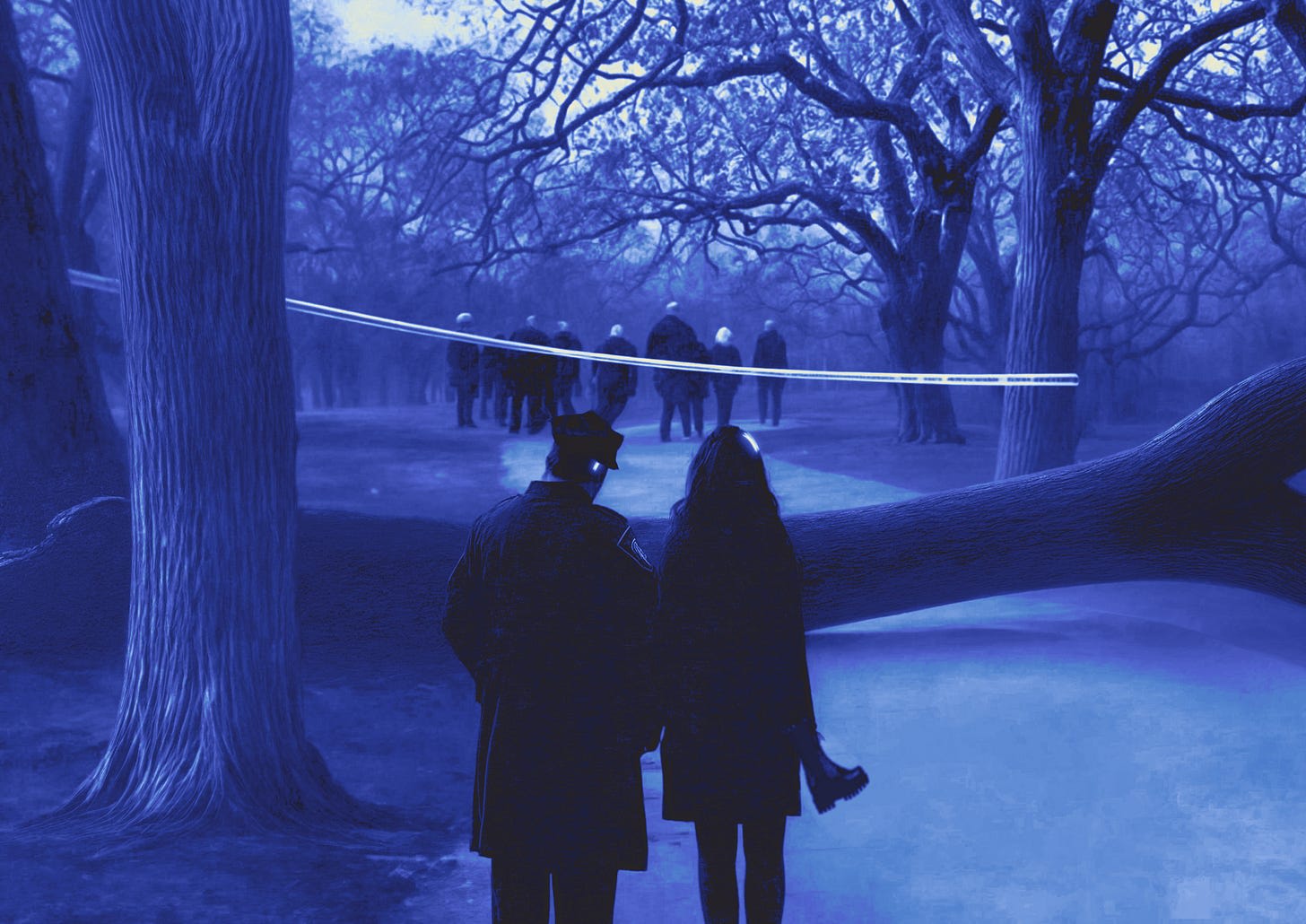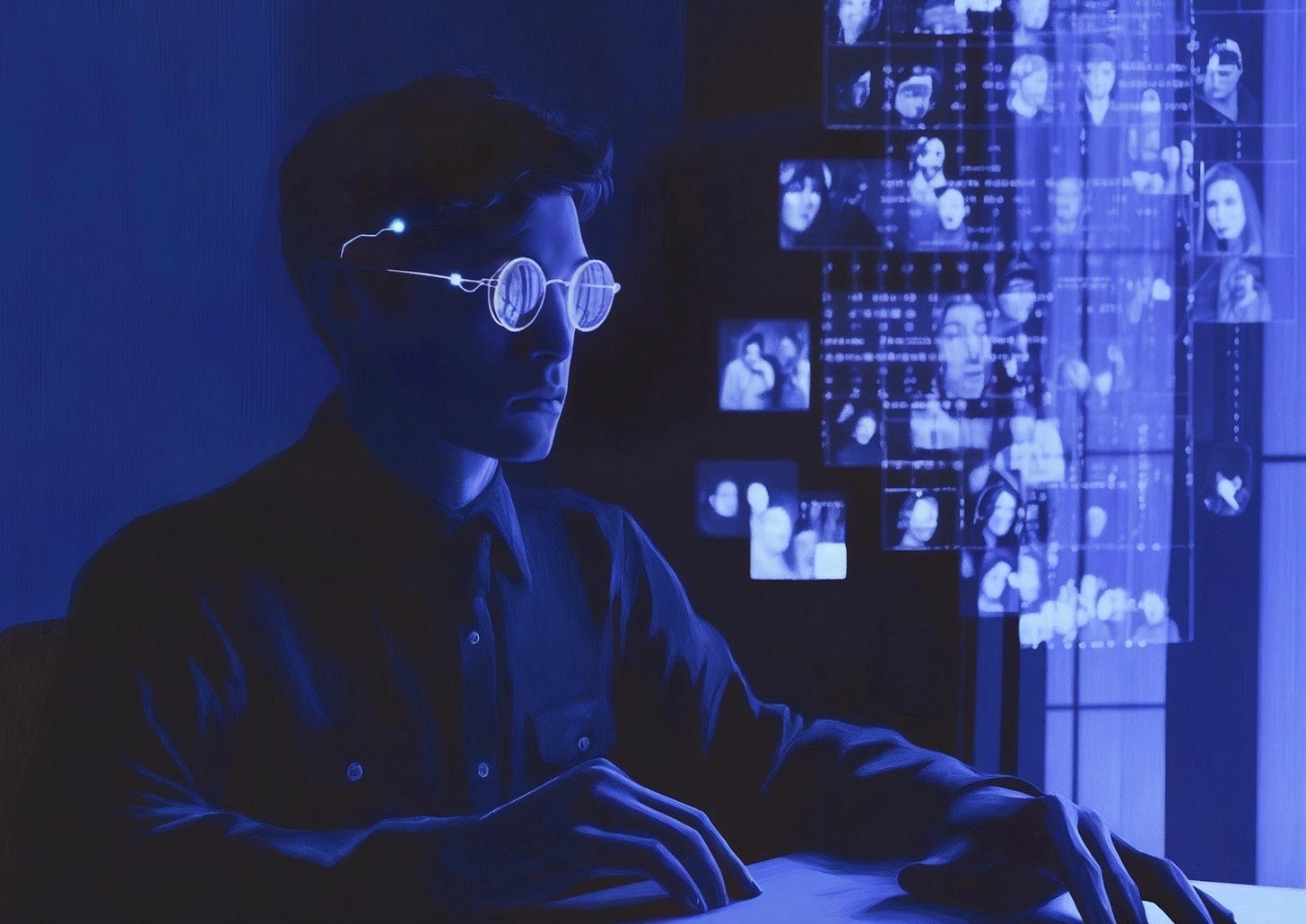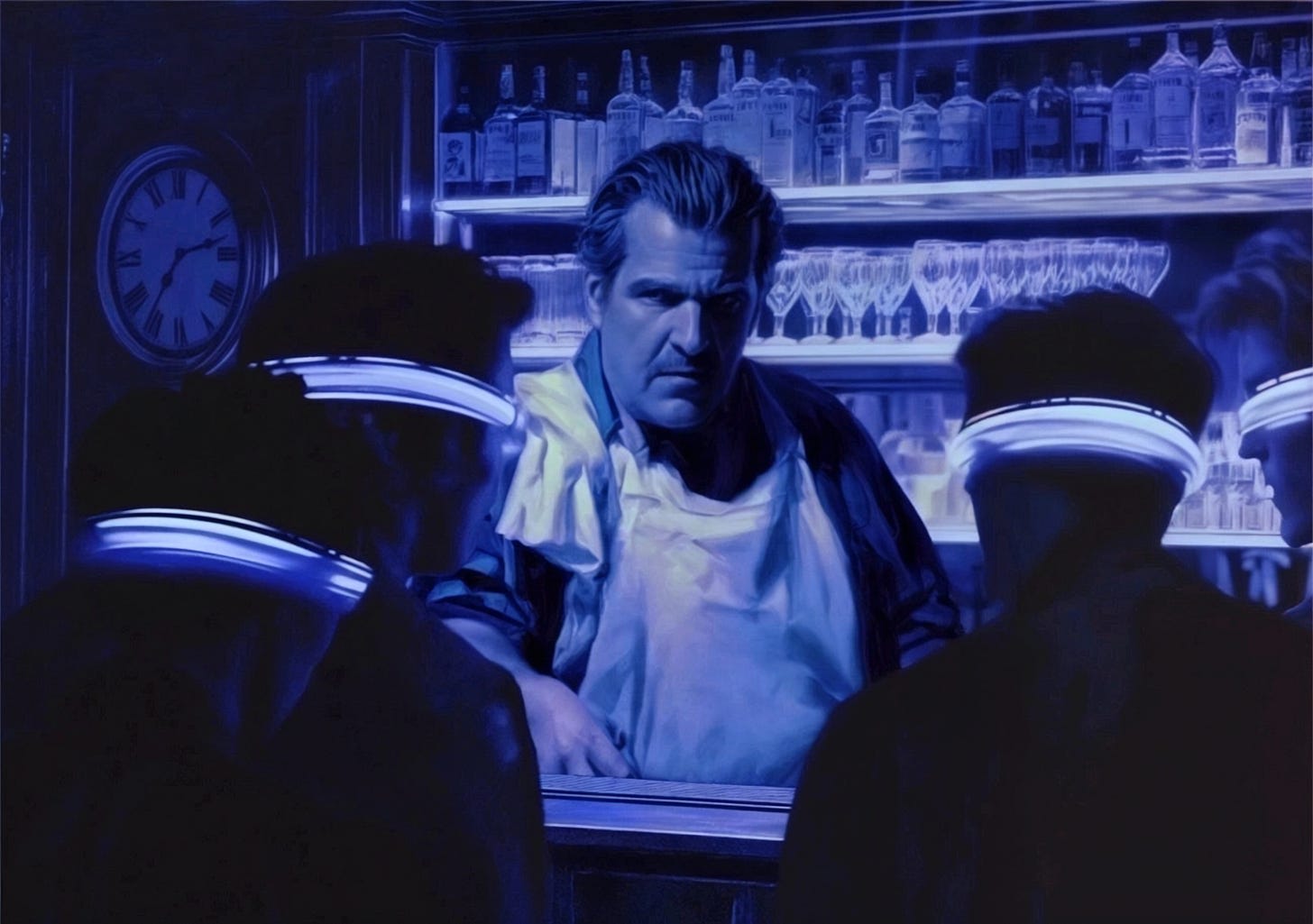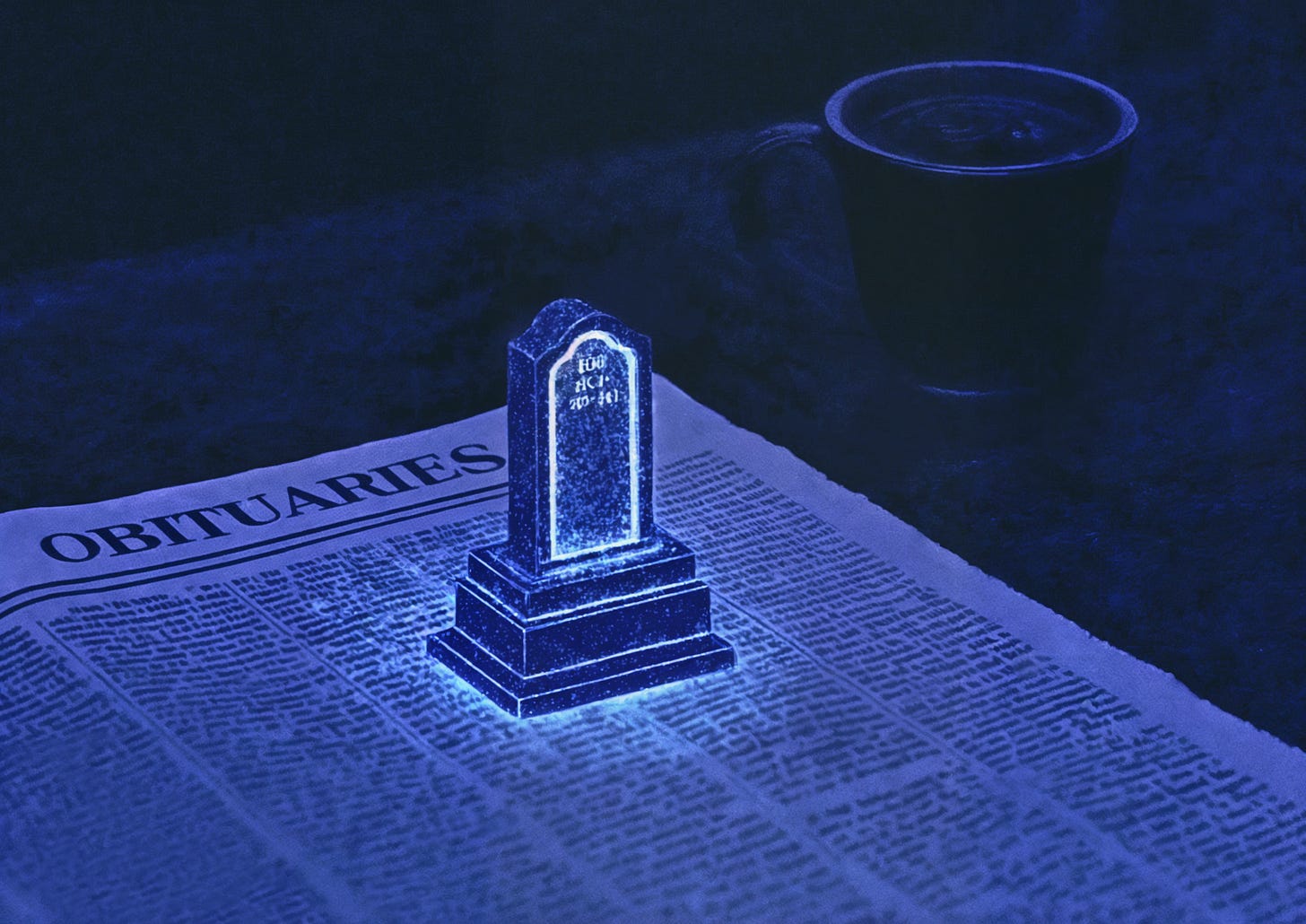Eulogy to the Obits
post by Niko_McCarty (niko-2), xanderbalwit · 2025-04-21T14:10:27.211Z · LW · GW · 1 commentsContents
1 comment
By Xander Balwit
With death all but obsolete, Jamie’s life felt moot and emaciated. The Obituary Desk at The Times, where he worked, had turned into a ghost town he presided over with the bearing of a man who had given everything up for the bitter disappointment of a mine devoid of mineral riches. He would go on long walks around the deserted halls, choosing a different desk each day from which to work on whatever writing projects he could find. It was a shame, for death was what he liked writing about most.
Lives had been easier to frame when they’d been time-bound. A man at 60 is hardly the same man at 153, let alone 154, with how quickly things were changing. Happily, at least for Jamie, there were still the unfortunate saps who gave up the ghost to sheer accident or, lacking technological enthusiasm or a spirit of curiosity, elected to bow out early — or had never opted in to begin with.
Deaths were rare enough that when one was announced, those still employed in the Obits clamored, begged, and connived their way into a piece of the action. But after an ugly incident involving a bribe, a bottle of cognac, and the burning of an office chair, the holdouts had taken to drawing straws.
As luck would have it, Jamie drew the next reported incident. He didn’t know when exactly it would take place because chance, rather than age, had come to herald death’s arrival. No longer could one preempt those venerated elders whose lives had been haunted by finitude as now they sustained themselves through a regimen of drugs, diets, and therapies: products of the decades and countless billions poured into longevity medicine.
The call came a little after noon, just after Jamie had returned from the short walk down to his favorite cafe for his third cup of coffee that morning. The cafe line crept along at a glacial pace because their barista was one of the older task models — attractive, but inordinately slow — steaming milk with the rigidity of someone who detests babies but has found themselves holding a squalling one. There was an awkwardness about her that Jamie liked, a charm in the mechanical smile and uncanny valley of her handwriting on the cup he now tossed aside as he made his way out of the building to the scene.
Hurrying across the park, he could see the uprooted tree lying horizontally across the path before he saw the police tape. It had been a windy few days, and the weather-weakened roots had not been up to the task. Even with the body removed, the site was surrounded by onlookers, keen to see the aftermath of the lethal accident. A police officer stood consoling a blubbering woman, who described a powerful snap, a shriek, and a boot sailing into the freshly manured lawn. The boot still hung from her hand.

The manner of death had always been popular with Obit readers, who craved details, reveling in the drama of sheer randomness — the rotten branch, the freak lightning storm, the accidental tumble out a window. They now had the means to live hundreds of lives, but the unpredictability of their environments still posed a threat. And as safe as cities had come to be, any nature not battened down, any architectural feature not secured, still presented inhabitants with the only opportunity to join their ancestors the old way.
So while Jamie noted the details of the park — the marigolds in bloom and the predominance of Goldendoodles — he also wrote how the mangled body was extricated with only one shoe, hardly recognizable save for its lace.
Back in the office, Jamie began digging up all he could find on the dead woman. The shoelace belonged to Elena Kramer, whose public record placed her at somewhere between 84 and 168 depending on which program she had been operating on at the time of the accident. She had grown up in Jersey and was the oldest of her family to opt in, so that by the time she did so, she was already physiologically elderly. Perhaps this had contributed to her fatally slow egress from underneath the tree. While Jamie learned she had been a high-school music teacher before opting in, he could not find much in her profile to suggest a deep love of music. Instead, it seemed that she had spent her time ice skating. The terabytes he combed through showed years of exuberant gliding across wintered-over ponds and glacial streams until she could land moves befitting a 20th-century Olympian. Videos of Elena danced across his headset like beads of rain.

Jamie hadn’t realized how long he had been lost in the visualizations until his colleague Nils, a thickly accented Swede with an unruly mop of mouse-brown hair, knocked on his door.
“Dinner?” Nils asked.
It was customary that when one of the group received a call, they would celebrate the following Friday over oysters and ales down at Sydney’s. They liked Sydney’s because it was quiet. Even though most of their cohort had opted in, Jamie included, they felt a kind of sentimentality for those people and places that felt untouched by such choices. There were no screens at Sydney’s, only finger-softened menus, a rococo bar groaning under its fleur-de-lys, and a grandfather clock in the foyer, stuck forever at 7:13.
Jamie, suddenly aware of his hunger, stood up from his desk and stretched.
“Dinner,” he concurred.
“Have you put any words down today?” asked Nils, as they descended the wide stairway to the lobby.
“Just an opening line: ‘Elena Kramer, an ice-skater who once glided across piano keys with similar grace, died on Oct. 17th, 2076, when a tree brought her to her final rest in St. Catherine’s Park.’”
“To the point. Was she skilled?”
“Impressively human,” Jamie replied.
Jamie had seen better skating, of course, for everything in the sim was done at a superlative level. But it was rare to find such a human touch — little imperfections, such as turning the beginnings of a fall into a shotgun spin, were details that sims still fumbled or omitted. These signatures of a previous, unaugmented life were generally only achieved by those who had opted in late.
Sign up for Asimov Press.
Subscribed
The October air smelled like wet newspaper and baking bread, and the cold scraped the men’s faces as they walked. Sydney’s was down a narrow street, where the colors of various neon signs clashed over the rain-slicked sidewalks. Sometimes Sydney’s daughter worked as a server, but she wasn’t there today. That suited Jamie just fine. Her glassy dark eyes and pouting mouth unnerved him and made him feel awkward. By all rights, he should be able to relate to her just fine. He had opted in, after all, and was able to access any and all manner of social decorum instantaneously. But the sim still struggled when dealing with some of the unaugmented — those with enigmatic expressions, the very old, and those with darker skin.
Jamie had another theory, too — that the sim was thrown off by looks of sheer contempt; perhaps the faces on which it was trained had been too adoring, too expectant, and too willing to be understood by the technology capturing their biometrics. Some of the training subjects may have been nervous of course, but none that truly loathed the program would have elected to help enable it. The sim lacked some crucial data underscored in Sydney’s daughter’s flashing eyes and disapproving smirk.
“Will it be the usual for you boys, then?” asked Sydney, advancing on the table smelling of fish and cigar smoke. “Or,” he asked, “are you too full from imagining thethought of dry-aged branzino and oysters? Maybe you already drank up in your head.”
Sydney, the proprietor and head chef, had not opted in and was aging about as well as a formerly heavy smoker and robust eater could. His brassiness and occasional outright hostility towards those who had chosen otherwise kept many prospective patrons at bay. He also knew perfectly well it didn’t work like that; they had to take in calories just as he did.
“The usual’s fine, Sydney,” they chorused.
Jamie felt the juice from the lemon he had been squeezing sting a cut he didn’t know he had as he listened to Nils and Amir gripe about the Obits. Amir, a few glasses of brandy in, was deep into his usual spiel.
“I’ve half a mind to kill ‘em myself. ‘Cept I know they’re likely decent folks, just like us in this room. Only you walk past ‘em, and they look right through you. ‘Course, we do it to them, too, when we’re running our programs. Only it’s so damn unsociable, really. I’ve half a mind to grab the nodes right from their heads. Maybe chuck ‘em into the harbor. Or better yet — chuck them and their nodes into the damn harbor. That way we might actually have something to write. Well, that doesn’t even matter, really, cause I’ll be quitting soon. Too much damn sentimentality in this job. And we’re running out of octogenarians and the accident-prone, anyway. Soon there won’t be people to be sentimental about.”
Jamie, Nils, and Harry moved their faces sympathetically, but they all knew it would be good if Amir quit. He was right. Obits had become unbearably slow. Jobs in and around the sim were inevitable. Why avoid them? And why focus on the very fact they had all shaken off with the arrival of the program? Jamie had been scared of death his whole life, and now he was obsessed with it — like a hypochondriac intent on watching his own surgery.
Nils, who had been fiddling with something on his watch, raised his head and slammed down his fist. The force sent the oyster shells rattling.
“Maybe we should be convincing people to opt-out,” he said.
The other men also shared this thought. But it somehow seemed a worse possibility than nudging the few remaining holdouts into the path of an oncoming train. Who would want to relinquish infinity? But they all knew that some people certainly did: people for whom any career in the world, any language, any woman, could not slake their boredom or frustration; those who felt like cheats or defectors; those who suspected their decision to opt-in had been an affront to God. Indeed, skeptics offered a long list of reasons. Reasons the men at the table had all written about before.
The answer didn’t come from them, however, but from Sydney. The barkeep had been listening from a high-backed chair at the counter, where he was busy peeling garlic, but now he materialized before them, dishrag over his shoulder.
“Good idea,” he boomed. “Too much fantasy is a drug. And a society on drugs is no society at all — only a simulacrum. Living one life slowly is good. You absorb it that way. Why anybody would want more is beyond me. Most people can’t even understand the life they’ve got. You get folks to opt out, I’d give 'em free drinks and hang a picture of you over my bar.”

As Sydney made his way back toward the kitchen, Jamie glanced at the spot he’d indicated. His eyes came to rest on the clock and, for the first time, he found himself wondering what had happened at 7:13 the day it stopped.
The building where Jamie lived ballooned into the skyline, unapologetically obstructing a large electrified billboard for various luxury baths. These baths hardly needed advertising. Almost everyone Jamie knew had a membership to such “safe zones,” where they could swaddle themselves from any unpredictability left in the outside world. There, in an atmosphere resembling a sanatorium crossed with an incubator, those who opted in could select from a carefully curated list of spa treatments, gene therapies, and other routine physical maintenance. The bath experience was so nice, in fact, that some people ran them in their sims even while there in a kind of infinite regress.
Jamie preferred the humbler comfort of his own apartment building.
Constructed in 2054, it had been a senior living facility boasting both high-quality care and kosher meals. Well past its glory days, its original residents had either died or opted in, leaving for the comforts of the more modern constructions uptown. Their rooms had been replaced by boutiques, kino machines, produce stalls, and cafes run by an unlikely slice of society — those who had never opted in and the working rich — as well as an assortment of robotic models, both general and task-specific.
Only two rooms were still occupied: Jamie’s and another belonging to Ms. Fitz.
Jamie had moved in because he’d been attracted to the building’s eccentricity, the reasonable rent, and the proximity to a few remaining centenarians whose passing might mean work (they had). Ms. Fitz, by contrast, had inherited the place from her mother. Now, in the very room where she had passed, Ms. Fitz kept a menagerie of canaries and a blind cat named Mavis. It had taken Jamie a while to figure out that Ms. Fitz had opted in because, outside her apartment, she never wore the nodes, headsets, or other devices favored by those in the sim. When he finally asked her, she let out a musical laugh and said, “When I am out, I like to occupy the world, such as it is.”
Though their rooms were on different floors, they made a point of seeing each other regularly. They caught up over coffee, as, having lived in Ankara for decades with her first husband, Ms. Fitz brewed it in the traditional Turkish style and served it in dented brass cups that Jamie loved. He would drink down to the grinds while listening to her tell stories about the physical places she had traveled. And while Jamie was skeptical that they could be all that different, Ms. Fitz was adamant.
“I have been back to Ankara in the sim, and it looks exactly as I remember,” she said. “The Mahaleb cherry trees outside my old house, the cracking paint on my neighbor’s shed … But it does not smell the same. They haven’t captured the quality of the air. Nor the right feeling of the sun on the skin. It’s close. But somehow, Turkey itself is lost.”
“What do you think the sim is good for then, if not modeling worlds?” Jamie asked.
“But it is skilled at modeling worlds,” Ms. Fitz replied. “Only, endogenous ones. We get to know ourselves better. We can iterate faster and introspect more deeply, and there’s far less to miss. It’s as if we can experiment with being multiple people.”
Jamie mulled this over as he rolled his coffee grounds around the bottom of his cup, where they formed a little crater. He wondered if he ever experimented with being multiple people. Perhaps the best example of this was the day he opted in. He remembered the first couple weeks of headaches as his brain assimilated to its quicker processing speed. He remembered the gluttony of those hours (days?) spent on the couch sampling different personalities and simulating far-flung cities.
He could never get used to the queasiness, though, that came with ceaseless exploration, preferring one identity at a time. However, even so, one often blended into the next, as when his interest in steel-frame construction vaulted him into civil engineering. Jamie didn’t remember these as fully distinct eras, but he did recall a palpable sense of evolution.
As Jamie drifted off that night, he wondered about the death of those transitional selves, left behind as one moved from the world as it was to the world in the sim, or between programs, fields of study, partners, cities, and interests. These, it dawned on him, were no less significant than the passage between biological life and death.
Pulled by the idea, Jamie tottered from his bed, shadow flickering across the fins of his radiator as he made his way over to his desk. When he booted up his computer, his unfinished Obit for Elena Kramer illuminated his face.
“Elena Kramer, an ice-skater who once glided across piano keys with similar grace, died on Oct. 17th, 2076, when a falling tree brought her to her final rest in St. Catherine’s Park.”
Jamie frowned. “Her final rest.” That much was true. But she had had others. He knew she spent her early life instructing high schoolers on how to hold a bow, printing sheet music in moldering teacher’s lounges by day, and listening to symphonies in the inky black of her large bed by night. Then she had opted in — a death! And traded music for the ice — another death!
Indeed, the more he examined her life the more deaths he found.
By the time Jamie heard the mourning dove outside his window skittering across the metal gutter, the triviality of Elena’s biological death had become clear. The obituaries Jamie wrote could do nothing to influence or affirm their subjects, but they might if only he wrote them earlier.
The transitional deaths were the meaningful ones.

The Obituaries Desks at The Times had turned into a boom town. From Jamie’s office, he could hear the constant clacking of keys and shuffling of shoes as reporters traipsed in and out. The rapidity with which people changed in the sim meant constant work, yet — this bothered no one. The ceremony of marking the transitions between selves was electrifying. And where Jamie and his colleagues used to have to seek out tragedy, self-reported triumph now sought them — A doctor wanting an obituary on his transition into marine ecology. A former postal worker wanted notice for having turned physicist. A newlywed couple sought an obituary for their former single-selves. Jamie himself kept a running obituary of his own open on his desktop. And while he did not add to it as quickly as others, he ended each eulogy with an ellipsis — three small dots that signaled that so long as he lived, more deaths would follow …
Listen to a behind-the-scenes interview with the author on Spotify or Apple Podcasts.
Xander Balwit is editor-in-chief of Asimov Press.
Cite: Balwit, X. “Eulogy to the Obits.” Asimov Press. DOI: 10.62211/28he-94ty
Artwork by Martine Balcaen at sure.ai.
1 comments
Comments sorted by top scores.